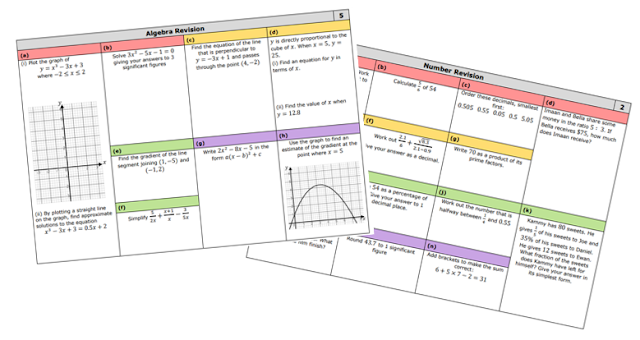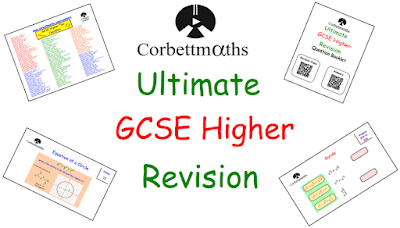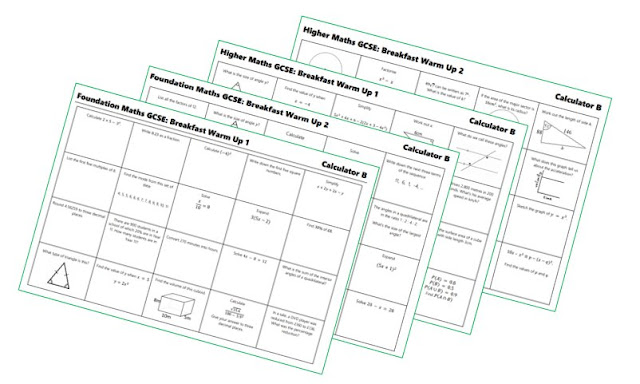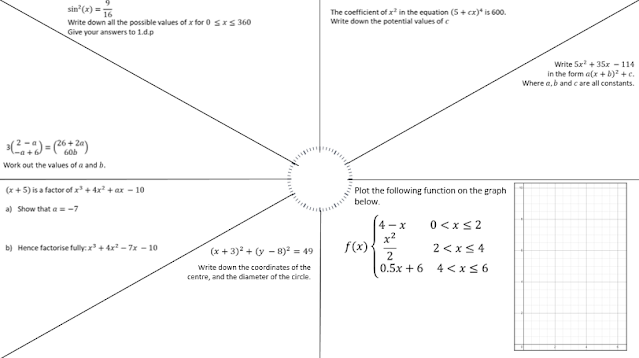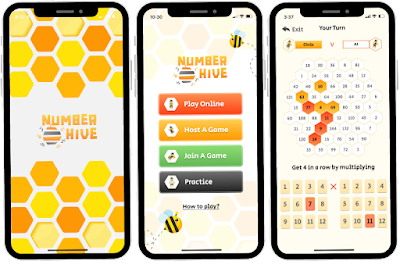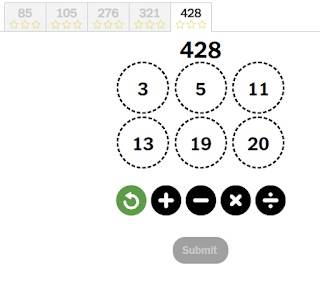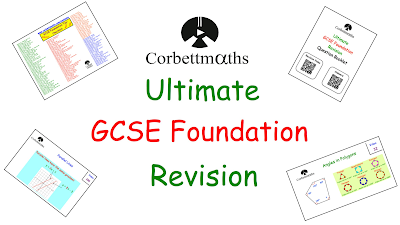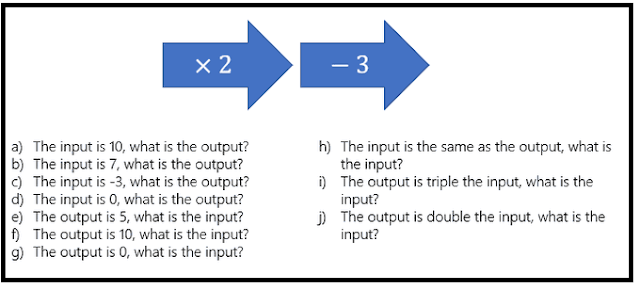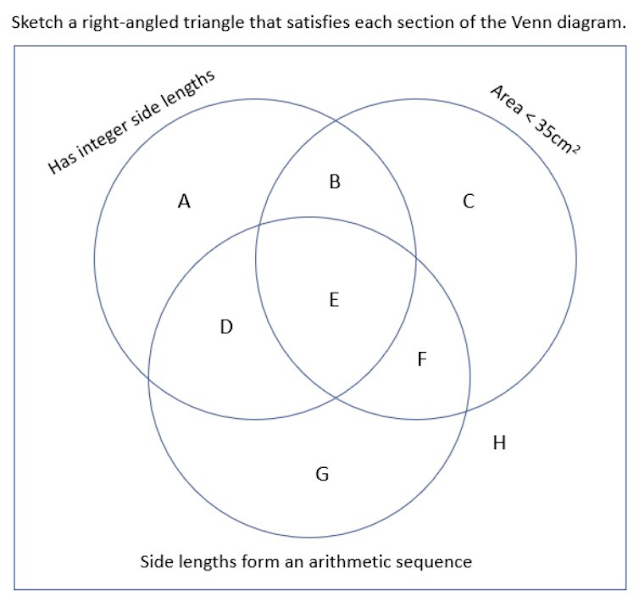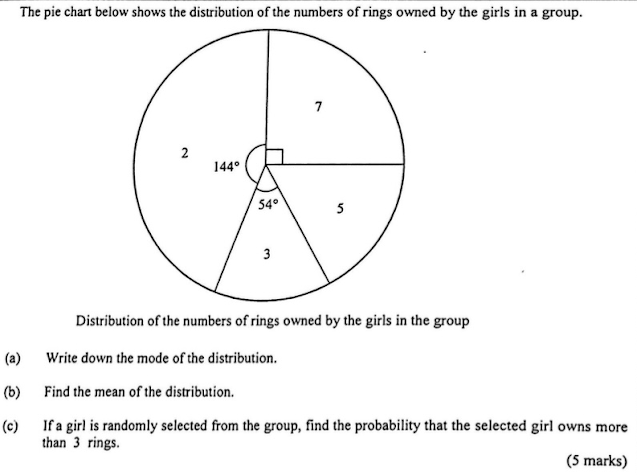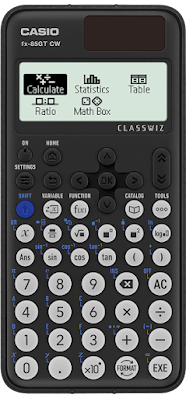Almost a decade since curriculum reform brought significant timetable restructures, secondary schools are now under pressure to offer a broader curriculum and give more time to non-core subjects. So they're starting to take time away from maths. I'm not saying this is a bad thing. I'm very much in favour of a well-balanced curriculum with generous helpings of arts, sport and humanities. I'd be very happy to have a smaller maths curriculum. The problem is, we still have 'big fat maths' but now, in many schools, there's suddenly less time to deliver it.
Curriculum breadth isn't the only reason maths curriculum time is being reduced. There's also a shortage of maths and science teachers, and one way schools can tackle this problem is to have fewer maths and science lessons on the timetable. I predicted this situation in a
Schools Week article in 2014.
In recent months many teachers have been telling me that their school has reduced the curriculum time allocated to maths, so we need to start asking the question: if we're not given enough time to deliver the full curriculum, which bits shall we skip?
I believe that one of the most important parts of my job is maximising children's opportunities for social mobility by helping them to gain qualifications. Every single topic on the maths Key Stage 3 and 4 curriculum is assessed at GCSE. So choosing to skip topics during Years 7 to 11 means that we send our students into their GCSE exam to be assessed on content that they have never been taught. This troubles me greatly.
Thankfully I had a moment of clarity at the Joint Maths Subject Associations Conference in the Easter holidays. Colin Foster delivered an excellent MA Presidential Address where he said this:
He's right, it's not about skipping topics, it's about prioritising content.
I need to stop fretting about
cutting topics, because it's not necessary, but I do need to loosen up about
rushing topics. Because it's not the end of the world if some 'less important' topics are rushed.
I passionately believe in teaching for depth. I've spent the last six years running
CPD for teachers on teaching for depth. I can't think of anything worse than being forced to spend only two lessons on Pythagoras' Theorem. To me, skimming the surface of topics is letting students down. But I have to face facts - we
can't give students a deep understanding of
every single topic on the curriculum because we simply don't have time. So we have to pick and choose.
Teach Pythagoras in depth, but not box plots.
Teach quadratics in depth, but not graphical inequalities.
Teach indices in depth, but not rotational symmetry.
Teach area in depth, but not plans and elevations.
Teach similarity in depth, but not constructions.
Teach probability in depth, but not bearings.
You get the idea. We have difficult decisions to make, but we need to just bite the bullet and start making them.
For years I've been encouraging teachers to teach in depth, but now I need to clarify: some topics get this treatment, and some don't. In an ideal world, we'd have time to go into depth for every topic. But that's just not practical - we need to do what we can with the time we're given.
******
Perhaps sometimes we prioritise the wrong topics. A few years ago there was a lot of focus on bearings because it was flagged as a topic that students consistently did badly on at GCSE. As a result of this, I've spent a good chunk of time teaching bearings over the last few years: measuring, estimating, drawing, calculating, problem solving. I even show my students the satellite view on Google Maps, looking for the bearings marked on airport runways. I enjoy teaching bearings. But at the end of the day, a bearings question might only be worth a few marks out of 240 at GCSE. And any student who actually needs to use bearings in their future career will learn about them again when the time comes. Bearings is not a fundamental topic that underpins the maths that follows. So I need to cut my bearings coverage down to a couple of lessons. I do this with a heavy heart, but it needs to be done.
Our choice of what to teach and how long to spend on each topic is totally dependent on the class we're teaching. If I'm teaching Higher GCSE and my students may take A level maths, I don't rush quadratics because strong quadratics skills are absolutely vital at A level. But if I have to rush through plans and elevations, so be it.
A sequence plan for box plots for discrete data might have once looked like this:
Lesson 1: Determining median, quartiles and interquartile range from a list of discrete data
Lesson 2: Drawing box plots using discrete data
Lesson 3: Reading and interpreting box plots
Lesson 4: Writing comparisons using box plots
Lesson 5: Collecting, summarising, displaying and comparing two sets of discrete data using box plots
Lesson 6: (off-curriculum) Skew and outliers
But we can probably cut that down to two or three lessons if we have to:
Lesson 1: Determining quartiles from a list of discrete data and using them to draw box plots
Lesson 2: Reading, interpreting and comparing box plots
Whereas Pythagoras, one of the most glorious topics on the curriculum - one which features in numerous other topics - needs to be done in depth. For example, here's a possible sequence of lessons on 2D Pythagoras:
Lesson 1: Roots and squares
Lesson 2: Labelling/vocabulary + history of the theorem
Lesson 3: Finding the hypotenuse
Lesson 4: Finding the length of a leg
Lesson 5: Multi-step problems (use of exact values)
Lesson 6: Worded problems
Lesson 7: Converse of Pythagoras
Lesson 8: Distance between two points
Lesson 9: Mixed problems involving Pythagoras
I'm not prepared to cut any of this! And note that I didn't include any off-curriculum stuff here (like a lesson on triples or proof, or even one on Fermat's Last Theorem). Imagine having a maths curriculum that allowed us time for all those wonderful extras.
*****
To those of you asking me for advice on how to tweak your curriculum to make it fit in your time allocation: my solution isn't particularly satisfactory but it's the best I can come up with. Sit down with your team and decide where your priorities lie. What topics matter the most? What topics are important? Spend time on those topics. Don't skip the others, but don't worry if they feel a bit rushed. Just do your best to make it all fit. Remember what Colin said: less is more.
You never know, if we're lucky we might see curriculum reform in the next five years. I'll write about this in my next post.
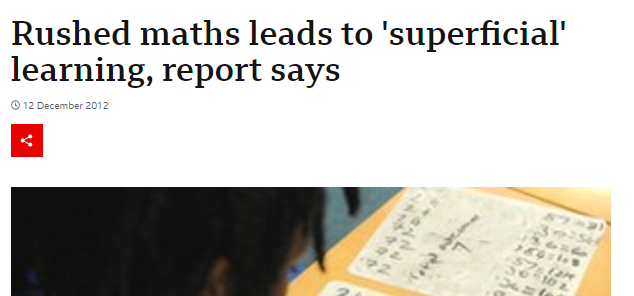 |
| Article from 2012: ACME report says pupils should have "a deep, rigorous and challenging" school maths experience |
 Welcome to my 169th gems post. This is where I share some of the latest news, ideas and resources for maths teachers.
Welcome to my 169th gems post. This is where I share some of the latest news, ideas and resources for maths teachers.